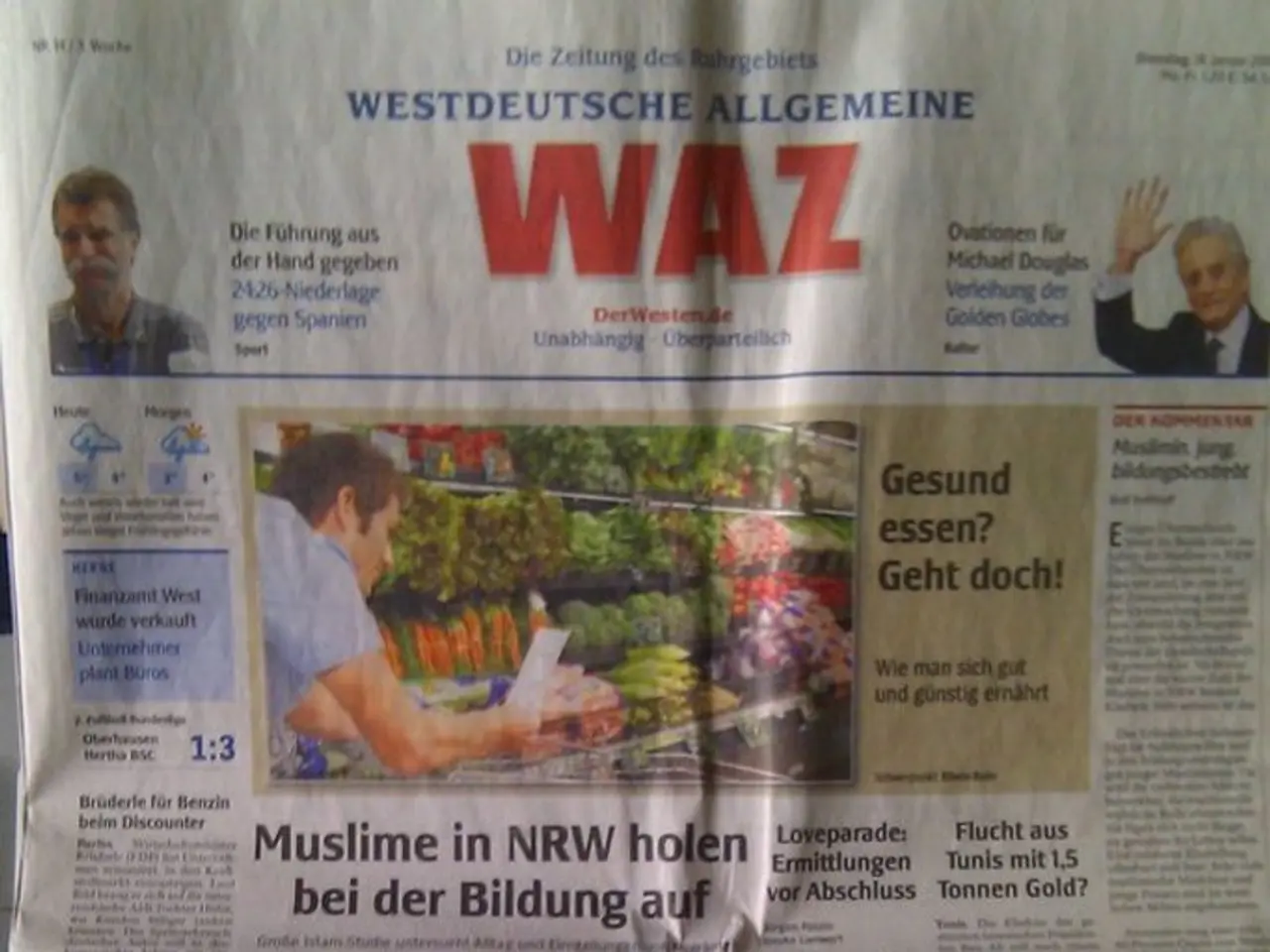Fintech Highlights from May's Latest Developments
In the realm of fintech, May 2025 was marked by a flurry of significant activities, including collaborations, funding developments, and regulatory discussions. These events were primarily highlighted at key industry events and sector conversations.
One of the most notable collaborations was the launch of Europe's first trading and settlement platform on DLT, which listed its first product: a tokenized UBS money market fund. This marked a significant step forward in the adoption of blockchain technology in the financial sector.
Vivid Money, a fintech company, became one of the first to receive a MiCAR license, enabling it to launch its crypto offering in Germany, France, and the Netherlands in July. Meanwhile, Robinhood announced plans to make US securities tradable in Europe using a blockchain-based platform, in collaboration with a partner.
N26, a popular neobank, expanded its services by launching mobile plans, provided by Vodafone, through the N26 app. The fintech behind bezahl.de raised $23 million in its Series C funding round, with Blackfin Capital Partners as the new investor.
Klarna, another prominent fintech company, reported a 15% increase in revenue to $701 million and a net income of $3 million. However, losses from US consumer credit increased, and the AI-promoted plan to replace call centers was not working out as planned.
Revolut agreed to collaborate with EPI, becoming a scheme member of Wero and enabling its customers to use the payment service. Volksbank Lahr integrated the private market offering of wealthtech Nao, giving its 100,000 customers access to investment opportunities previously reserved for high net worth individuals and institutional investors.
Finom raised over 92.3 million euros in growth financing from General Catalyst Customer Value Fund. Taxdoo expanded its offering for tax firms and online sellers with an AI-powered, automated bookkeeping solution.
Circula raised 15 million euros in its latest funding round from several existing investors. André M. Bajorat, a long-time figure in the German digital economy, joined Deutsche Bank as a Managing Director at a German asset manager. He is also the founder and publisher of a successful industry portal, a podcaster, investor, member of the Digital Finance Forum of the Federal Ministry of Finance, and an internationally sought-after speaker in banking, payment, FinTech, API banking, digital assets, and crypto.
In the realm of payments, PayPal and Curve challenged Apple Pay by enabling contactless payments on iPhones, requiring customers to choose between Apple Wallet and their wallets when using the double-click feature.
Fincite and Harvest joined forces to become the European champion through further acquisitions in the medium term. Deblock, a French startup, launched in Germany, aiming to combine banking and the storage of cryptocurrencies. Solaris might get a new CEO, possibly the former Flatex boss.
Philipp Schaaf joined Re:cap as Chief Operating Officer (COO). 360X, founded by Carlo Kölzer, is now on the ESMA list for the DLT pilot regime, making it only the third company in Europe. The German Stock Exchange is also involved.
Wero operator initiative adjusted its strategy to pursue collaborations with payment service providers. The neobank C24 offered a €75 bonus to new customers who open an account. Revolut chose Paris as its headquarters for Western Europe.
Regulatory updates and industry insights were central during the American Banker Digital Banking Conference, reflecting the fintech sector’s need to navigate evolving compliance frameworks, especially regarding digital payments and digital assets. This suggests heightened focus on regulatory adaptation in May 2025 as fintech activities scaled.
Major global fintech conferences, such as the Dubai FinTech Summit and the UK’s FinTech Connect 2025, fostered partnerships and innovation. Such gatherings are pivotal in sparking new collaborations and sharing regulatory insights.
Financial Inclusion Week 2025, with its expanded scope and new AI-driven translation tools, emphasized building resilience and well-being through inclusive finance, spotlighting the fintech ecosystem’s role in promoting financial accessibility as a strategic priority.
In summary, fintech activities in May 2025 were characterized by active bank-fintech collaborations, strategic discussions on regulations, the staging of major global fintech conferences facilitating funding and innovation, and a sector-wide drive toward financial inclusion and resilient futures.
- Several European companies, including Vivid Money, N26, and Finom, had significant activities in the realm of fintech, such as receiving licences, launching new services, and raising funds from investors like Blackfin Capital Partners.
- The industry of fintech witnessed a surge in investments and collaborations, with companies like Klarna and Revolut partnering with EPI, Wero, and EPI, and European fintech firms Fincite and Harvest aiming for expansion through acquisitions.
- In addition to these developments, fintech players were actively engaging in regulatory discussions, as seen in events like the American Banker Digital Banking Conference and Financial Inclusion Week 2025, which focused on navigating evolving compliance frameworks and promoting financial accessibility.




